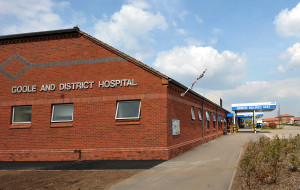Face and neck lift
If the signs of ageing are starting to concern you or you are self-conscious about a facial feature then a facelift may be the answer for you. A facelift, or rhytidectomy, is a surgical procedure to improve visible signs of ageing in the face and neck. Surgery can dramatically rejuvenate your appearance, giving your face a freshness that makes you look several years younger.
What happens during the operation
Although the procedure is completed under a general anaesthetic a local anaesthetic is also inserted with adrenaline in order to minimise any bleeding and to help the surgeon define where to make the incision. A continuous incision is made running from the temple downwards, hugging the contours at the front of the ear, around the earlobe to travel up behind the ear in its natural crease, then along the hairline. In men, the incision in front of the ear hugs the back of the sideburn in order to prevent pulling the sideburn hair on to the front of the ear when the skin is redraped.The skin is then carefully lifted off the underlying muscle up to an imaginary line and drawn down from the corner of the eye. The flap will not be made any bigger than this as there would be a chance that the blood supply could not support the raised skin.
After the skin is raised, the underlying tissue is gently pulled up and stitched into place in order to give better form to the face and jawline once the skin is laid back down. This is carried out in both the face and upper neck. Additional liposuction under the chin may be necessary.
Aftercare and recovery
Antibiotic cream is placed over all of the incisions followed by gauze dressings and a gauze bandage. The following day, the bandages are removed to check the wounds and the drains are removed. A lighter dressing is then applied, to be removed the next day at home. The stitches are then removed a week after surgery. Patients will have further follow-up appointments one month, six months and a year after the surgery.
Aftercare of the “lifted” face makes the difference between a good and excellent result. Simple measures such as regular use of moisturisers, plenty of fluid intake and avoidance of sun exposure for six months can make a big difference as can avoiding smoking for at least two weeks after the surgery.
Risks and complications
All surgical procedures carry risks so it’s important that as well as the benefits of cosmetic procedures you are also fully aware of any complications that may arise.
Complications are rare but the most common one is bleeding and blood clots. This is usually avoided by meticulous control of bleeding at the time of surgery along with insertion of a drain and supportive facial bandaging. In addition to these measures, it is important to stop medications that prevent coagulation two weeks before the operation, until two weeks afterwards. Examples of these medications are aspirin, warfarin and anti-inflammatory medications.
Infection and necrosis (death of tissue) are rare as antibiotics are applied post-operatively and wounds are monitored to ensure that the first signs of a problem are picked up quickly. To reduce the potential for this occurring even further, patients who smoke should cease at least four weeks before the operation until at least two weeks afterwards, so that the small blood vessels in the face work to their maximum potential.
Scars will always be present after surgery but these are usually hidden in natural facial lines and creases. Occasionally they can widen or become hypertrophic (swollen), this being a particular problem in Asian, Latin or African skin types. If severe it can be treated with steroid creams or injections and occasionally, if very obvious, revision of the scar surgically is also an option.
To enquire about our services or to make an appointment call us on (03033) 302956 or make an online enquiry
Who will perform this procedure?
Where can I have this procedure performed?

Goole and District Hospital
Goole hospital is where all of our cosmetic procedures are carried out, although you can choose to have your clinic consultations at Scunthorpe or Grimsby hospitals if this is more convenient.
How much does it cost?
| Initial Consultation Fee | From £150 |
| Face and Neck Lift | From £7488 |
Quality of care
From the moment we receive your request for a consultation through to the completion of your treatment we offer the highest standards of care.
Affordability
We offer a high quality service at competitive prices. As we work out of NHS hospitals we are able to offer procedures that are more affordable than our competitors
FAQ
From 'what's included in the price' to 'how to pay' see some of the questions asked by our patients and the answers.